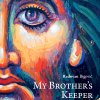Voinovich, considered a moderate who opposed the size of former President George W. Bush’s tax cuts and later questioned Bush’s war strategy in Iraq, died peacefully in his sleep, his wife Janet confirmed. His death came as a surprise to friends, who said he seemed strong despite some recent health struggles.
During his 12 years in the Senate, Voinovich occasionally found himself at odds with Republican conservatives. He was an early supporter of a proposed federal bailout for the auto industry, which employs thousands of people in Ohio, and he was the rare Republican during the Bush administration to suggest raising taxes to pay for the war in Iraq and hurricane relief. He served in the Ohio House from 1967-71, and in each election he won the support of Cuyahoga County’s mostly Democratic voters because of his connection to the ethnic communities and his easygoing style.
Born George Victor Voinovich in 1936, he was the oldest of six children. His parents, George and Josephine, were Serbian and Slovenian. Their parents had immigrated to the United States from what is now Croatia, and Voinovich grew up with a strong ethnic identity.
He had delivered public remarks Friday at a 25th Slovenian Independence Day event at Cleveland City Hall. He was a delegate to the Republican National Convention coming to Cleveland next month.
Sources: Washington Post & Associated Press





